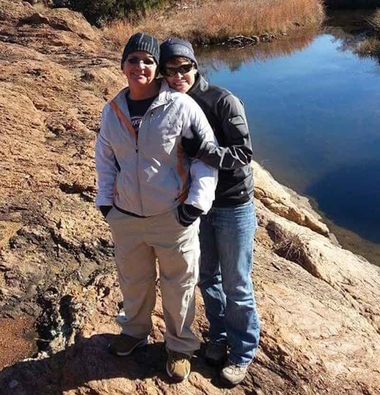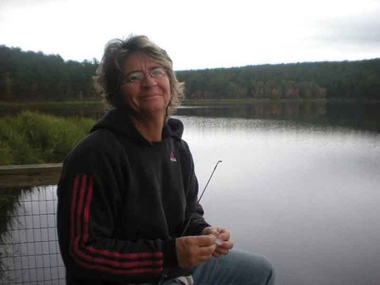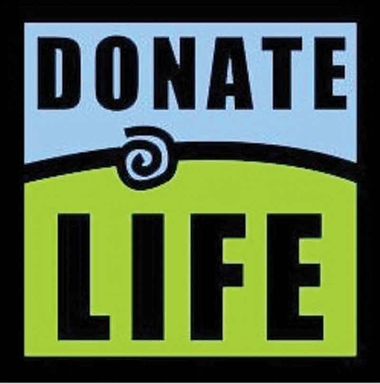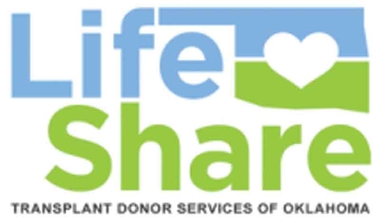She gave the gift of life

by Robin Dorner
Editor in Chief
“I love you,” were the last words Rhonda Gray and Julie Brinlee said to one another.
Both registered nurses, the couple was married in 2015. They had been together for 10 years until Brinlee’s untimely death.

Brinlee grew up in Oklahoma and spent a lot of time enjoying lake activities like skiing, boating, fishing and her Sea Doo. Her favorite activity, however, was not on the lake. It was on her mountain bike.
“She taught me how to ride a mountain bike,” said Gray. “She was a racer in the 90’s and into 2000. We spent several great years of biking together that I will cherish forever.”
The two also loved to hike, camp and fish and lived on the beach for a year near Galveston, Texas.

“Julie touched the lives of so many people,” Gray continued. “She had an adventurous spirit and a ‘can-do’ attitude. She would always try to fix things herself and usually, she would do it.”
After a minor outpatient procedure in May 2016, Brinlee was sent home to recover. Within four hours, she woke up with severe dizziness, a headache, and intractable nausea and vomiting. Gray called the physician and was told it was “just a reaction to the anesthesia.” He prescribed medication for the nausea and vomiting.
After nearly 24 hours with symptoms persisting and multiple calls to the physician, Gray’s intuitive nature lead her to load Brinlee in their van and head to the E.R. There, they were again told her symptoms were a reaction to anesthesia for which Brinlee received more medical intervention.
Brinlee was also a very intuitive R.N. Even in her illness, she had the skills to diagnose her own condition and, at one point, said to the physician, “I think you need to do a CT. We’re looking in the wrong places.”
She got the C.T. scan, was transferred to a room and soon after, had a seizure. They moved her to the intensive care unit (ICU) where she was alert, but groggy from pain meds.
About 9 p.m., Gray said, “You rest and I’m going to go check the dogs. I love you.” Brinlee mumbled back, “I love you.”
Those were the last words they spoke to each other. Gray was home for about 20 minutes when she got a call, “There’s been a change in condition. Julie just had another seizure.”
Gray rushed back to the hospital. Brinlee had another seizure which caused her breathing to stop and she was placed on life support.
She had a cerebellar stroke which destroyed her brain stem; she was brain dead. At 55, she had a diagnosis which leaves no hope of survival.
As Brinlee’s wife, Gray had many decisions to make.
“This is all about Julie’s generosity of spirit. As far as signing her donor card, since I have known her she did that. That was how she lived; helping people.”
And to dispel any myths, there is no ban on organ donation by gay men or an HIV+ person can donate (to recipients with HIV on the list).

“Organ Donation Decision Week is the week of Thanksgiving,” said Tammye Green, Special Projects Director at Lifeshare Oklahoma. “We want to encourage families to talk about their decision to become a donor when they are with their family over the holidays.”
Gray went on to say, today in her life, nothing is the same. “It’s so hard. People ask if things are ‘getting back to normal’ and I think, ‘they never will.’ I have never experienced this kind of grief. To lose a mate or a child, it’s like a big hole gets ripped in your life.”

Gray said when something like this happens, you realize how much that person is a part of your every thought.
“I’d walk through the grocery store and think of things she would like to have at home. I kept making the same amount of coffee I would make when she was there. I did that for almost three months and when I made a pot just for me, I called a friend to tell them what I had accomplished.
“I’ve just had a hard time finding myself again.”
Copyright The Gayly – November 21, 2017 @ 9:45 a.m. CST.





